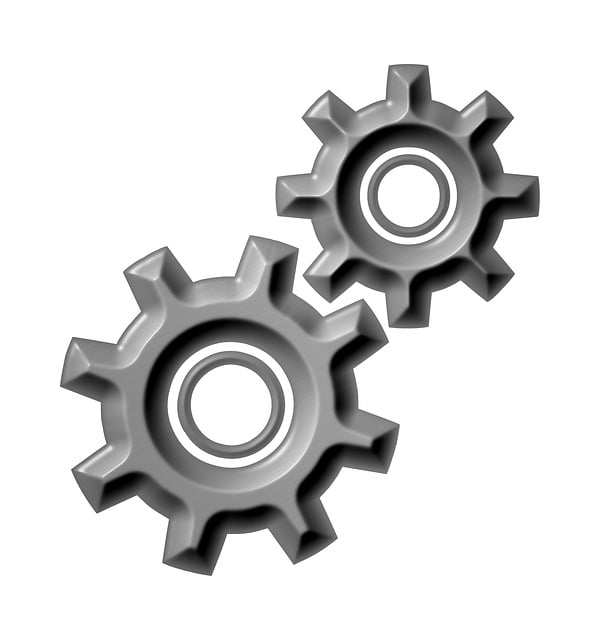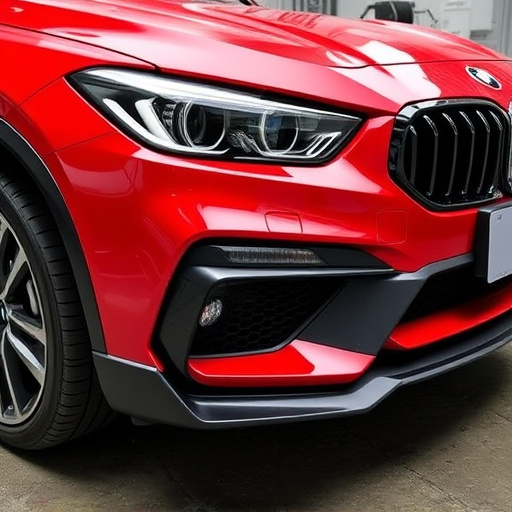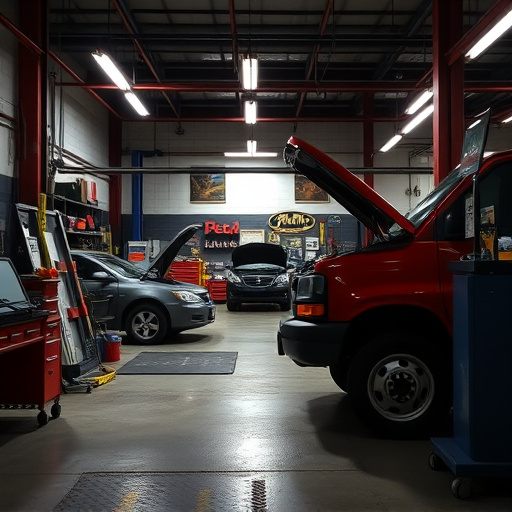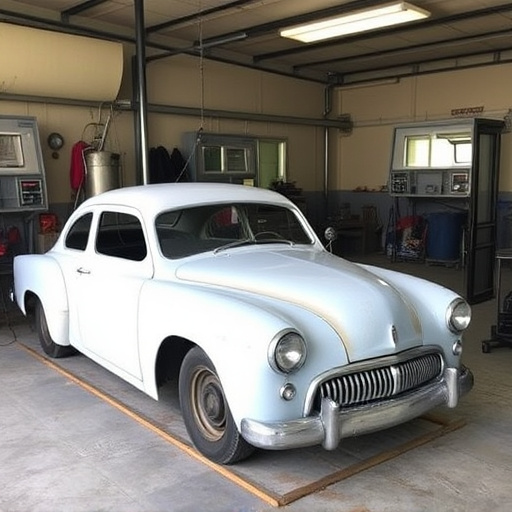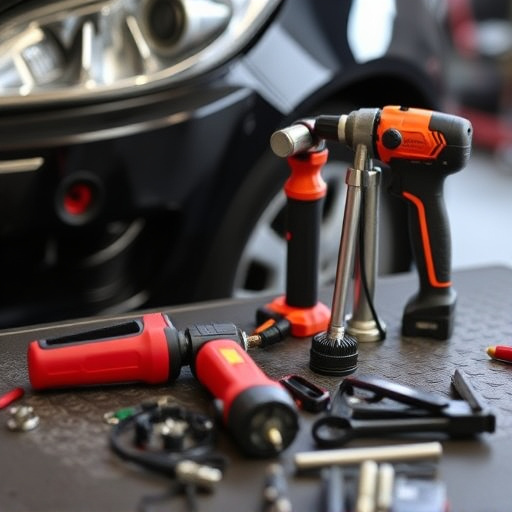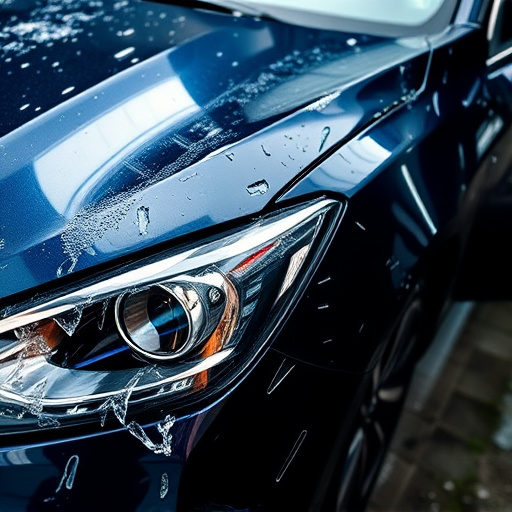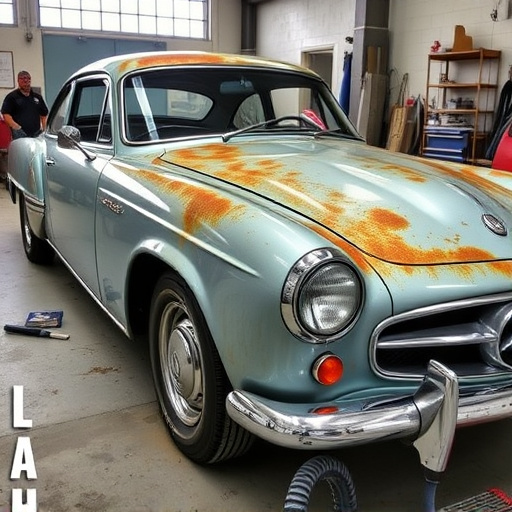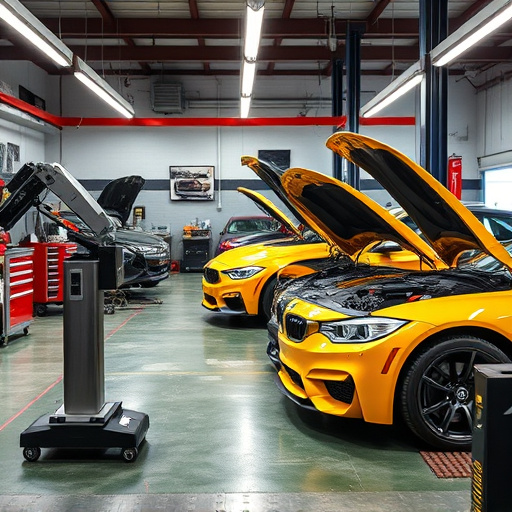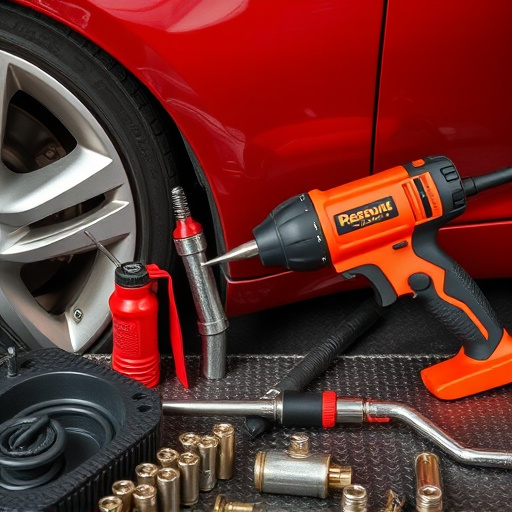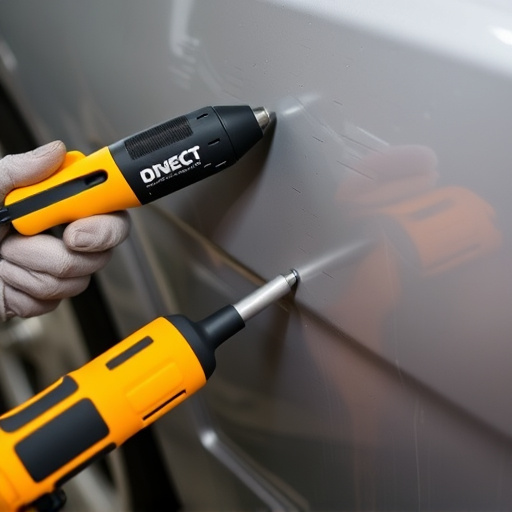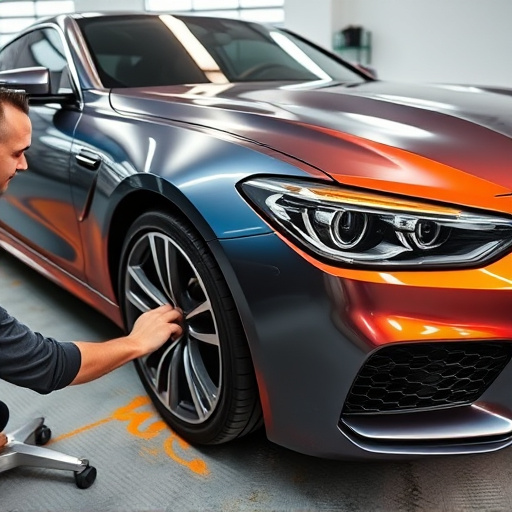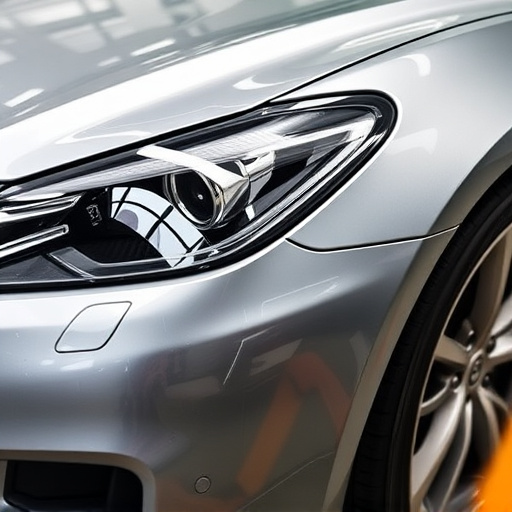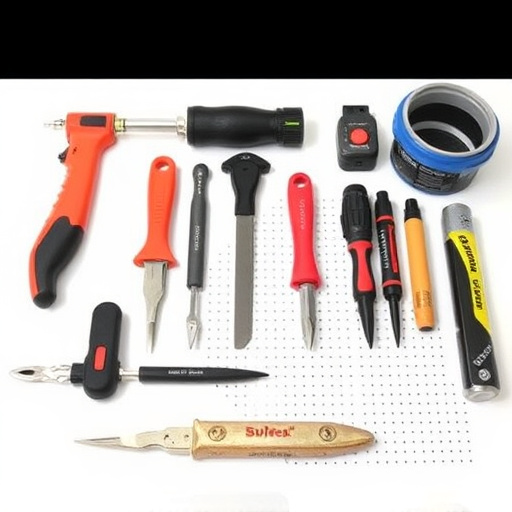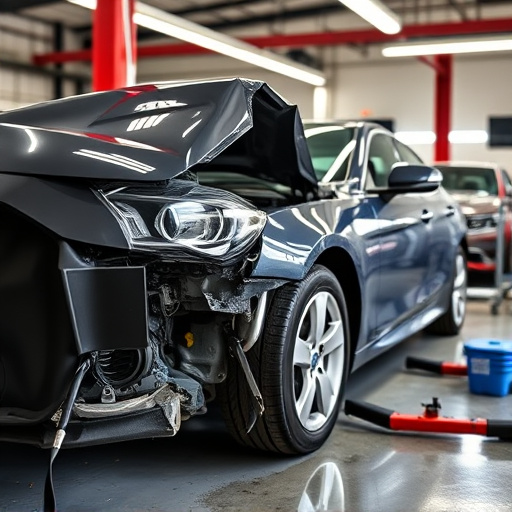Collision repair scheduling for hybrid and electric vehicles (HEVs) requires specialized knowledge due to complex electrical systems and battery packs. Body shops need advanced tools, trained technicians, and manufacturer guidelines to handle HEV repairs effectively, balancing unique demands with standard procedures for timely service. Digital platforms, real-time updates, parts tracking, and customer communication enhance efficiency; prioritizing urgent issues and adopting sustainable practices improves customer satisfaction.
In today’s electric vehicle (EV) and hybrid vehicle (HV) landscape, efficient collision repair scheduling is paramount. Understanding the unique complexities of repairing these advanced vehicles is crucial for shop productivity and customer satisfaction. This article delves into the challenges and strategies surrounding repair scheduling collision for hybrids and electric vehicles, exploring key considerations and efficient approaches to streamline operations and meet growing demand.
- Understanding Collision Repair for Hybrids and Electrics
- Scheduling Challenges: Unique Considerations for EV/HV Vehicles
- Efficient Strategies for Hybrid and Electric Repair Scheduling
Understanding Collision Repair for Hybrids and Electrics
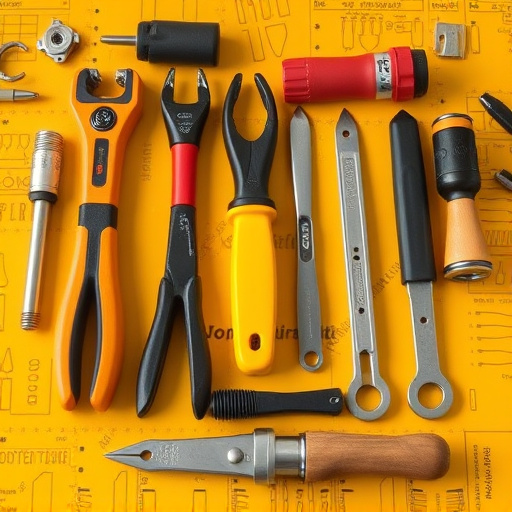
Collision repair for hybrid and electric vehicles is a specialized field within the automotive industry. These vehicles differ from their conventional counterparts in several ways, particularly due to the presence of complex electrical systems and battery packs. Understanding these nuances is crucial when it comes to effective repair scheduling collision services.
When a hybrid or electric vehicle is involved in an accident, specialized knowledge is required to safely disassemble and reassemble the vehicle while ensuring the integrity of its electrical components and vehicle body repair. Unlike traditional automotive repair, where damage might primarily affect the exterior and mechanical systems, hybrids and electrics demand additional care to prevent short circuits, protect sensitive electronics, and preserve the efficiency of the vehicle’s hybrid system or battery pack. This specialized approach requires trained technicians and advanced equipment tailored for efficient collision repair scheduling.
Scheduling Challenges: Unique Considerations for EV/HV Vehicles
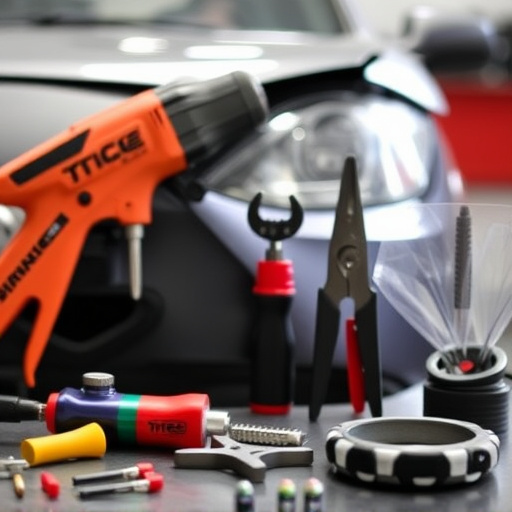
The landscape of repair scheduling collision for hybrid and electric vehicles (EV/HV) presents unique challenges compared to conventional internal combustion engine (ICE) cars. These challenges stem from the specialized nature of EV/HV components, advanced technologies, and stringent safety standards. For instance, charging systems, battery packs, and regenerative braking systems require specific handling and replacement procedures that differ significantly from traditional auto maintenance practices.
Body shops offering Mercedes-Benz collision repair services, among others, must be equipped to handle these intricacies. This includes access to specialized tools, training for technicians on EV/HV technologies, and adherence to manufacturer guidelines. Efficient repair scheduling involves balancing the unique needs of these vehicles with standard operational procedures to ensure timely service while maintaining safety and quality standards.
Efficient Strategies for Hybrid and Electric Repair Scheduling
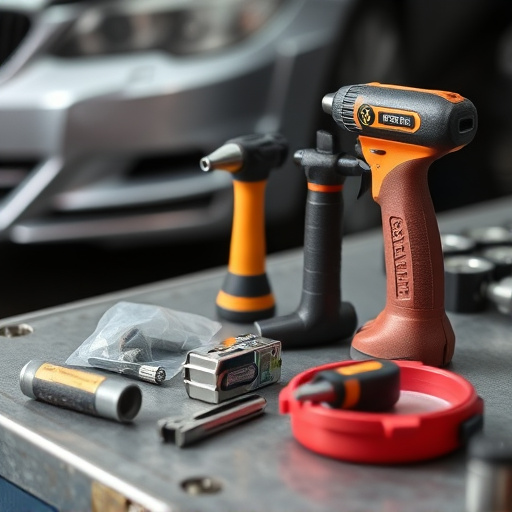
Efficient Strategies for Hybrid and Electric Repair Scheduling
In the realm of automotive repair, efficiently scheduling collision repairs for hybrid and electric vehicles (EVs) is paramount due to their unique technological considerations. These vehicles often require specialized skills and equipment to address issues, especially when dealing with sensitive battery systems and advanced electronics. Implementing robust digital scheduling platforms can streamline the process, allowing for real-time updates, accurate tracking of parts, and efficient communication between service centers and customers.
By integrating these strategies, repair shops can minimize downtime for hybrid and electric vehicle owners. For instance, prioritizing vehicle paint repairs and collision damage fixes based on urgency and complexity ensures that more critical issues are addressed promptly. Furthermore, leveraging experience with high-end brands like Mercedes Benz repair, which often involve sophisticated electrical systems, equips technicians to handle the intricacies of these vehicles capably. Such approaches not only enhance customer satisfaction but also contribute to the overall efficiency and sustainability of the automotive service industry.
Collision repair for hybrid and electric vehicles (EVs/HVs) presents unique challenges due to their complex power systems. Understanding these intricacies is vital for efficient repair scheduling, ensuring swift and precise restoration without compromising safety or environmental standards. By adopting tailored strategies that address the specific needs of EVs/HVs, shops can optimize their operations, meet growing demand, and provide top-notch service in the evolving automotive landscape. Effective repair scheduling collision management is not just a game changer; it’s essential for keeping these advanced vehicles on the road safely and sustainably.
